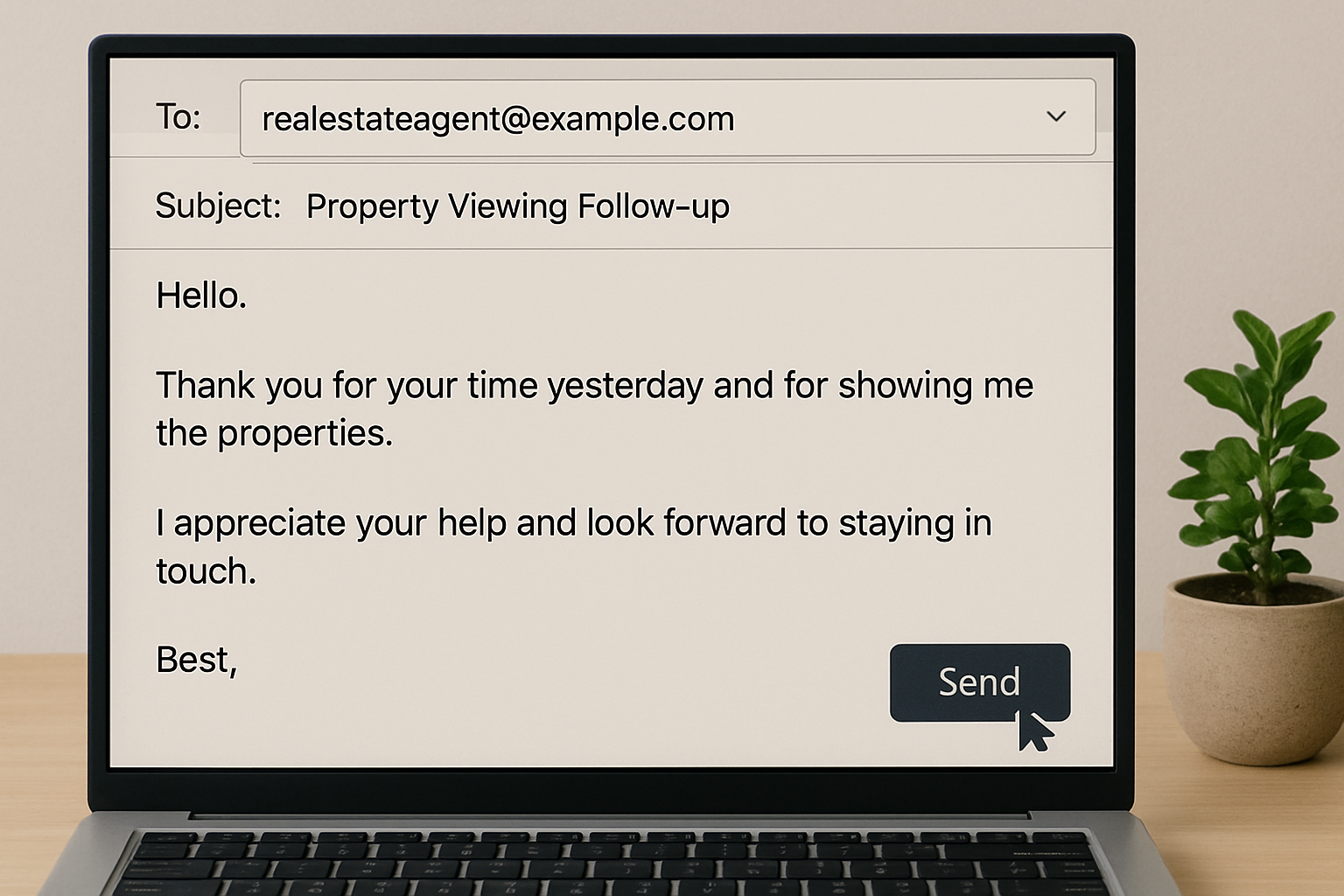For real estate owners engaged in rental management, there are various points to note and pitfalls to avoid when entering into a lease agreement. This article provides a detailed explanation from the owner's perspective, covering basic matters to consider when entering into a contract, important clauses to include in the contract, common issues and their solutions, responses to the latest legal amendments, and the importance of collaboration with rental management companies.
Basic matters for owners to note when entering into a lease agreement
Clarification of contract terms
When entering into a contract, it is essential to clearly define basic terms such as rent, security deposits, key money, and the contract period. It is important to avoid proceeding based solely on verbal agreements and instead exchange written documents to prevent misunderstandings between both parties. Specific details such as the amount of rent, payment deadlines, payment methods (including bank transfer details and who bears transfer fees), as well as provisions regarding contract renewal and termination conditions should be clearly stipulated and documented in the contract. If contract terms remain vague, disputes may arise later, such as claims of “I wasn't informed.” To avoid risks as an owner, ensure that all rental conditions are clearly stated in writing and that both parties sign and stamp the agreement to confirm mutual consent.
Confirmation of the contents of the Important Matters Explanation Document
When entering into a contract through a real estate company (licensed real estate broker), you will receive the Important Matters Explanation Document (a detailed explanation of the property and contract terms) from a licensed real estate broker prior to contract signing. As the owner, it is important to review the contents of the Important Matters Explanation Document in advance and check for any errors or omissions. The Important Matters Explanation Document includes important information for tenants, such as property rights (existence of mortgages, etc.), the condition of facilities, and contract terms. If there are errors in the contents, it may damage the trust between the tenant and the owner and lead to disputes. Therefore, it is important to clarify any unclear points with the real estate company in advance and have them corrected. Additionally, in cases of self-management where the owner directly rents out the property, there is no legal obligation to provide the Important Matters Explanation Document. However, it is recommended to provide it to prevent misunderstandings between the tenant and the owner. By explaining the condition of the property and the terms of the contract in writing in detail before signing the contract and obtaining the tenant's understanding and consent, you can prevent future complaints or lawsuits.
Tenant screening (credit check)
Before renting out the property, it is essential to thoroughly screen the tenant (prospective tenant) for creditworthiness and character. In addition to assessing the tenant's ability to pay rent (income status, employer, employment type, etc.), it is important to verify their past rental history and lifestyle to the extent possible. Specifically, this may include requesting income verification documents, employment verification from the employer, confirming emergency contacts, and verifying guarantors. Additionally, in recent years, joining a rent guarantee company has become commonplace, allowing you to assess a tenant's creditworthiness through the company's screening process. It is important to confirm that there are no issues with the tenant's background through the guarantee company's screening. Failing to conduct tenant background checks can increase the risk of attracting tenants with poor manners, such as nighttime noise disturbances or violations of garbage disposal rules. While it is difficult to fully assess a tenant's character in reality, entrusting tenant screening to an experienced management company can help highly likely eliminate problematic tenants. As an owner, collaborating with a reliable management company to conduct appropriate tenant screening and pre-screen problematic prospective tenants is essential for stable rental management.
Important clauses to include in the lease agreement
The lease agreement serves as the rulebook for rental property management. To ensure smooth management without putting the owner at a disadvantage, the following important clauses must be included:
- Rent and payment terms: Clearly state the monthly rent amount, payment due date (typically the ○th of each month), and payment method (bank transfer, etc.). Also specify whether late payment penalties apply and the rate, if applicable.
- Deposit and Key Money: Specify the amount of the deposit (security deposit) and key money, as well as the method of storage and settlement upon contract termination. For example, state clearly that “a deposit equivalent to ○ months' rent will be held, and upon move-out, any unpaid rent or costs for restoring the property to its original condition will be deducted, with the remaining amount returned.” The rules for returning the security deposit are also clearly stipulated in the Civil Code, which states that “the remaining amount after deducting the tenant's debts at the time of handover must be returned.” Taking this legal provision into account, we will clearly specify the security deposit settlement terms. Since the key money is a non-refundable special provision, its handling will also be stated in the contract.
- Contract term and renewal: Specify the type of contract (ordinary lease agreement or fixed-term lease agreement) and set the contract term. For ordinary lease agreements, a two-year term is common, and renewal is generally possible if the tenant expresses the intention to renew. If it is a fixed-term lease agreement, it must be clearly stated that the agreement will terminate upon the expiration of the contract term without renewal, and the possibility and procedures for re-contracting must be specified. The procedures and fees for renewal (as described below) prior to the expiration of the contract term must also be agreed upon in advance.
- Provisions Regarding Early Termination: Specify the conditions for early termination (cancellation) of the contract during the contract period. Clearly state in the contract the notice period (typically 1–2 months in advance) and whether a penalty fee applies if the tenant terminates the contract. If the landlord terminates the contract, it is generally difficult to do so without just cause under a standard lease agreement; however, specify the response and procedures in the event of unavoidable circumstances (e.g., demolition due to building deterioration). In the case of a fixed-term lease agreement, early termination is generally not permitted; however, it is possible to include a clause allowing termination in the event of unavoidable circumstances such as transfer or medical treatment (based on Article 38, Paragraph 5 of the Land and Building Lease Act). The landlord's right to terminate the contract early is highly limited from the perspective of tenant protection, and even if such a clause is included in the contract, it may be deemed legally invalid in many cases, so caution is necessary.
- Scope of the obligation to restore the property to its original condition: Clearly define the scope and content of the tenant's obligation to restore the property to its original condition upon moving out. Under the Civil Code, normal wear and tear resulting from ordinary use (such as natural fading or scratches) are explicitly excluded from the tenant's obligation to restore the property to its original condition. Therefore, it is advisable to stipulate in the contract that the tenant is only responsible for damages caused by intentional or negligent acts or damages exceeding the scope of normal use, and that all other damages are the responsibility of the landlord. For example, pinholes or minor scratches may be classified as normal wear and tear and the responsibility of the landlord, while cigarette burns or intentional damage may be the responsibility of the tenant. Additionally, while there are cases where special clauses (such as the so-called “deposit deduction clause”) are included to make normal wear and tear the tenant's responsibility, such clauses that are overly disadvantageous to the tenant may be deemed invalid, so careful consideration is necessary. Including clauses in accordance with the Ministry of Land, Infrastructure, Transport and Tourism's “Guidelines on Restoration to Original Condition” can help prevent disputes.
- Renewal fee: Regarding the renewal fee, which is commonly seen in residential rentals in the Tokyo metropolitan area, if applicable, it should be clearly stated in the lease agreement. A renewal fee is a one-time payment made by the tenant to the landlord upon contract renewal, typically equivalent to one month's rent. The lease agreement should specify whether a renewal fee is required, its amount, payment timing (e.g., at the time of renewal contract signing), and whether the landlord may refuse renewal if the fee is not paid. The practice of collecting renewal fees varies by region, but it is important to agree on the terms in advance to avoid disputes later, such as claims that the terms were not explained.
- Prohibited Acts: List the prohibited acts that the tenant must comply with when using the property. Typical examples include prohibitions on subletting without permission, using the property for purposes other than the stated address (such as an office or short-term rental), keeping pets (or requiring permission), playing musical instruments or making loud noises, bringing or using illegal drugs, bringing flammable or hazardous materials, and engaging in behavior that causes nuisance to neighbors (such as late-night noise). By clearly stating prohibited acts in the lease agreement and specifying that contract termination may occur in case of violation, you can encourage tenants to adhere to the rules and help prevent disputes. For example, you could include a clause such as, “If the tenant engages in unauthorized subletting or other breaches of this agreement, the landlord may issue a notice to remedy the violation, and if no improvement is made, the landlord may terminate the contract.”
Such clauses are essential components of a lease agreement. If these are missing or unclear, it may be difficult to protect the landlord's rights in case of an emergency or may lead to disputes with tenants. When drafting a lease agreement, it is crucial to seek professional advice and ensure that all necessary clauses are included and clearly defined.
Common Troublesome Cases and Lessons Learned
Various issues may arise after a lease agreement is signed. This section explains typical issues that landlords often face and the lessons learned from them.
Issues Related to Unpaid Rent (Rent Delinquency)
Rent delinquency is a serious issue for landlords. If a tenant fails to pay rent, the landlord not only loses income but may also need to consider procedures such as contract termination or eviction litigation if the delinquency persists. However, in Japanese rental practices, from the perspective of tenant protection, even if rent is unpaid, the contract cannot be terminated or eviction demanded immediately. Generally, three consecutive months of unpaid rent are required to constitute just cause for contract termination. Therefore, upon discovering unpaid rent, it is important to promptly notify the tenant, confirm a payment plan, and, if necessary, contact a guarantor company to seek substitute payment to minimize losses. As a preventive measure to mitigate the risk of non-payment, it is effective to require a sufficient security deposit (as a guideline, two months' rent or more) or require the tenant to join a guarantee company. If a guarantee company is in place, they will cover the rent if the tenant defaults, allowing the landlord to maintain a certain level of rental income. The lesson learned from rent delinquency issues is to implement measures to mitigate delinquency risks at the time of contract signing and respond promptly and appropriately when delinquency occurs. Prevent losses through initial measures and daily management systems.
Disputes related to contract violations (violations of prohibited items)
Disputes may arise if tenants violate the rules stipulated in the contract. For example, cases where the tenant sublets the property without permission, keeps pets despite a prohibition, or plays musical instruments late at night despite a noise restriction, leading to complaints from neighbors, are common examples of prohibited acts. If a contract violation is discovered, the landlord should first send a notice urging the tenant to rectify the situation and request that the tenant cease the violation or restore the property to its original condition (e.g., remove the pet) in accordance with the contract. If the tenant fails to comply, termination of the lease may be considered; however, in practice, the tenant may refuse to cooperate, leading to prolonged disputes. In lease agreements, the principle of tenant protection is strong, so immediate eviction for violations is not straightforward and may require negotiations or mediation. As lessons from lease agreement violations, preventive measures to avoid violations and calm and appropriate responses when they occur are essential. Preventive measures include screening tenants during the application process to avoid those likely to cause problems, and clearly explaining prohibited actions during the contract signing and having tenants agree to comply. Additionally, if a violation occurs, document the incident promptly, issue a warning, and consult with a property management company or expert (such as a lawyer) to take appropriate action before the situation escalates.
Disputes over restoration to original condition
Costs for restoring the property to its original condition upon move-out often become a point of contention between landlords and tenants. Typically, tenants argue that “dirt or damage caused by normal living is due to natural wear and tear, so I am not responsible for repairs,” while landlords claim that “repairs should be the tenant's responsibility based on the lease agreement.” For example, whether dents in the floor caused by furniture placement, fading or discoloration of wallpaper, or holes from air conditioner removal or push pins are considered normal wear and tear are common points of contention. As mentioned earlier, the rule that “normal wear and tear resulting from ordinary use is not included in the tenant's obligation to restore the property to its original condition” is clearly stipulated by law. Therefore, if the landlord attempts to deduct the cost of wear and tear from the security deposit, the tenant may legally challenge this. However, if the lease agreement includes a special clause and the tenant has agreed to it, such deductions may be permitted. Therefore, resolving disputes requires a thorough review of the lease agreement and discussions between both parties. To avoid disputes over restoration to original condition, the following lessons can be learned: document and share the current condition of the property at the time of move-in and specify the scope of responsibility in the lease agreement. By documenting the property's condition at move-in using a checklist or photos and ensuring both parties acknowledge any existing damage or stains, disputes over whether certain issues were present before move-in can be avoided. Additionally, by settling the restoration costs calmly in accordance with the agreed-upon rules, most disputes can be prevented. If negotiations fail to reach a resolution, consider utilizing local dispute resolution centers or small claims court.
Practical measures to prevent disputes
To prevent the above-mentioned issues and ensure smooth rental management, we summarize practical measures that landlords should implement.
- Active Use of Rent Guarantee Companies: As a measure against rent default risks, it is effective to contract with a reliable rent guarantee company. If tenants join the guarantee company, the company will cover any unpaid rent, ensuring stable income for landlords. Guarantee companies also play a role in verifying tenants' creditworthiness through their own screening process, making them useful as part of the tenant screening process. However, there are significant variations in the quality of guarantee companies, so landlords should select a reliable guarantee company (such as a real estate management company registered with the Ministry of Land, Infrastructure, Transport and Tourism that also provides guarantee services). It is important to confirm the terms of the guarantee agreement (such as the guarantee limit and the response procedure in case of default) in advance and establish a comprehensive system.
- Utilizing fixed-term lease agreements: If you wish to limit the rental period in advance or have circumstances that require the tenant to vacate the property with certainty in the future, consider utilizing a fixed-term lease agreement (regular lease agreement). With a fixed-term lease agreement, the tenant is required to vacate the property upon the expiration of the contract term, reducing the risk of the tenant refusing to vacate and requiring negotiations, as is common with ordinary lease agreements. For example, a fixed-term lease agreement is suitable for cases such as “I want to rent out the property for two years while I am away on a business transfer.” Additionally, even with a fixed-term lease agreement, both parties can agree to renew the contract, allowing for flexible management such as allowing a good tenant to continue living there after renewal. However, to effectively enter into a fixed-term lease agreement, legal procedures such as prior written explanation and clear stipulation in the contract document are required. Since the procedures can be somewhat cumbersome and may deter tenants, it is important to inform potential tenants about the fixed-term nature of the lease at the recruitment stage and enter into the agreement with tenants who understand and agree to the terms. The use of fixed-term lease agreements is a valuable option for property owners who wish to manage their assets in a planned manner without being subject to the tenant's circumstances.
- Regular review and update of the contract: Laws and precedents related to lease agreements change over time. Using outdated contract templates may result in deficiencies that do not comply with the latest legal amendments. For example, with the 2020 amendment to the Civil Code (Debt Law), the items that must be included in lease agreements changed, but even now, the amendments have not been fully implemented, and some outdated contracts are still in use. It is important for property owners to have their contracts reviewed by experts on a regular basis and update the terms and conditions in accordance with legal amendments and social trends. For example, it is necessary to revise the guarantor clause in the contract to comply with the obligation to set a maximum amount for guarantors (2020 amendment to the Civil Code), and to include clear provisions regarding the handling of security deposits. Additionally, if any special clauses with questionable validity (e.g., uniform full refund of the security deposit) are identified based on accumulated case law, consider deleting or revising them from the contract. Refer to the latest templates and prepare a contract tailored to your property and business policies.
- Thorough inspection of the property's condition upon move-in and move-out: The foundation for preventing disputes is records and evidence. When tenants move in, the property owner or manager should conduct a detailed inspection of the property in the presence of the tenant, create a checklist, and have both parties sign it. By documenting any damage, dirt, or defects in the property at the time of move-in (including photographs), it will be clear whether any damage occurred after the tenant moved in. Similarly, at move-out, conduct an inspection in the presence of the tenant, compare the records from move-in, and identify any areas requiring restoration to their original condition. Especially for minor scratches or stains, relying solely on memory can lead to disputes, so it is crucial to document evidence through photos or written records. The condition inspection report should include agreed-upon repair items and cost allocation, preventing misunderstandings later. These thorough procedures during move-in and move-out can significantly reduce disputes over security deposit refunds or repair costs.
Key points for addressing legal revisions related to lease agreements
The laws related to lease agreements are subject to frequent revisions, and landlords must stay informed of these changes and respond accordingly. Here are some key points to note regarding recent revisions.
- Response to revisions to the Civil Code (Debt Collection Act): The revisions to the Civil Code, which came into effect in April 2020, significantly revised the provisions related to lease agreements. One of the main points is the clarification of the rules regarding the return of security deposits and restoration of the premises to their original condition. Under the revised Civil Code, at the end of a lease agreement, the landlord (owner) must deduct any unpaid rent or restoration costs from the security deposit and return the remaining amount to the tenant. While this practice was already common in actual business operations, the clear legal stipulation is expected to help prevent disputes over security deposit settlements. Additionally, regarding restoration to original condition, it has been explicitly stated in law that “damage resulting from normal use is not the tenant's responsibility.” This reflects the codification of existing guidelines and is expected to help reduce disputes over repair costs for wear and tear due to the passage of time. However, it is important to note that clauses in contracts that make the tenant responsible for normal wear and tear are not automatically invalid, and there are cases where such clauses remain valid. Another important change is the strengthening of rules regarding joint guarantors. Under Article 465-2 of the amended Civil Code, if an individual is designated as a joint guarantor in a lease agreement, the guarantee agreement is invalid unless the maximum liability amount (guarantee limit) is specified at the time of contract. Previously, guarantee clauses often included broad language such as “guaranteeing all debts,” but going forward, they must be revised to state “guaranteeing up to a maximum of XX million yen,” with a specific upper limit set. There is no legal standard for the level of the maximum liability amount, which is left to the agreement between the parties. However, examples suggest setting it at approximately 18 months' rent as a guideline, taking into account the possibility of prolonged rent arrears. When requesting a guarantor, it is essential to update the contract to include this maximum liability amount. Additionally, under the amended Civil Code Article 465-10, a new obligation has been established for tenants to provide information about their assets and income to prospective joint guarantors (this applies to lease agreements for commercial properties such as offices or stores, not residential properties). If the tenant fails to fulfill this obligation and the guarantor is misled as a result, the guarantee agreement may be canceled. As an owner, it is necessary to include a section in the lease agreement requiring the tenant to provide the guarantor with the required information about their financial situation and obtain their signature. Finally, under Article 458-2 of the revised Civil Code, the landlord is now required to respond to inquiries from the joint guarantor regarding the tenant's rent payment status. If the owner or management company receives an inquiry from the guarantor asking, “Is the tenant paying rent properly?” they must respond promptly. Failing to do so may result in the guarantor refusing to pay the overdue amount, claiming that they were not informed of the situation in advance. As the amendments to the Civil Code directly impact contractual practices, it is important to reflect them in the contract and ensure compliance in daily management operations.
- Other relevant legal amendments: In addition to the Civil Code, there have been changes to other laws and regulations related to the rental business. For example, the maximum term of a lease agreement has been extended from 20 years to 50 years (amended Civil Code Article 604). This allows for the conclusion of ultra-long-term lease agreements, but it is unlikely to have a significant impact on typical residential leases. On the other hand, a more relevant amendment for property owners is the Residential Property Management Act (enacted in 2021). This law establishes a registration system for rental management companies, sets standards for business management systems, and imposes obligations for the separate management of assets. The purpose is to address issues such as disputes with sublease operators (so-called sublease problems) by requiring management companies to comply with certain rules. When selecting a management company, it is advisable to confirm whether the company is registered as a rental housing management company and whether it holds a real estate brokerage license. Additionally, with the trend toward digitalization, the Real Estate Brokerage Act was revised in 2022, allowing important matters to be explained online. Electronic signatures on contracts are also becoming legally valid. It is important to stay informed about any future revisions to relevant laws and regulations and update contract procedures and management methods accordingly.
The Importance of Collaboration with Property Management Companies and Selection Criteria
Finally, we will discuss the importance of collaborating with a rental management company (real estate management company). A competent management company is an indispensable partner for successful rental property management. Let us confirm the importance of this collaboration and the key points to consider when selecting a management company.
Benefits of collaborating with a management company
By entrusting property management to a management company, owners can significantly reduce the amount of work they need to do themselves. From recruitment (advertising for tenants, showing properties), contract procedures, rent collection,催促 of overdue payments, handling complaints, arranging repairs for equipment malfunctions, to final settlements upon move-out, entrusting these tedious tasks to professionals allows even busy owners to maintain stable operations. Especially when it comes to tenant screening and handling issues, the expertise and experience of a property management company can be a huge help. A reputable management company can use its own know-how to conduct proper tenant screening and exclude problematic tenants. Additionally, they can handle rent collection when payments are overdue, mediate in neighborhood disputes, and provide expert assistance if legal procedures are required—all of which can be challenging for individuals to manage on their own. Furthermore, they are well-versed in the latest legal changes and real estate market conditions, so you can receive appropriate advice on matters such as contract document preparation and rent adjustments. Overall, by effectively collaborating with a property management company, owners can continue their rental business with peace of mind, leading to reduced vacancy rates and the maintenance of asset value.
Criteria and key points for selecting a property management company
The most important thing is to choose a reliable management company. Choosing the wrong management company can lead to problems. Here are some key points to check when selecting a management company.
- Track record and experience: Check the management company's operational track record (number of properties managed, market share in the area), years in business, and the experience of the staff. Companies with a strong track record tend to have better tenant recruitment capabilities and problem-solving skills. Refer to reviews and reputation to determine if the company is trustworthy.
- Management Content and Service Scope: While property management may sound straightforward, the services provided vary significantly by company. Confirm the scope of services offered, including basic rent collection and delinquency follow-up, 24/7 emergency response, regular inspections and cleaning, coordination of repairs and renovations, handling of lease renewal procedures, final inspections and settlements upon tenant move-out, as well as whether the company offers rent guarantee services or subleasing (vacancy guarantee) options. Choose a company that offers services tailored to your needs.
- Management Fees (Costs): Management fees typically amount to approximately 5% of the rent. Extremely high rates can strain profits, while overly low rates may result in inadequate services. When comparing companies, consider not only the fee amount but also other costs such as advertising fees at the time of contract signing, the allocation of renewal fees, and settlement fees upon tenant move-out, to ensure a reasonable overall cost structure. It is wise to obtain quotes from multiple companies and compare them rather than making a decision based on information from a single company.
- Response attitude and communication: You will be working closely with the management company over the long term to operate the rental property. The responsiveness of the staff, reporting and communication systems are important criteria for evaluation. Confirm in advance whether regular operational reports are provided, whether they respond promptly in case of issues, and whether they can flexibly accommodate requests from the owner. It is important to assess the responsiveness during the consultation phase before signing the contract to determine if the representative is trustworthy.
- Compliance with Laws and Regulations and Reliability: It is essential to verify compliance with laws and regulations, such as whether the company holds a valid real estate brokerage license and has registered as a rental property management company. Additionally, check if the company is engaged in illegal operations and its membership status in industry associations (e.g., the All Japan Real Estate Association or the National Federation of Real Estate Brokers and Agents). Additionally, in light of recent issues with sublease companies, if a company proposes a sublease contract, carefully review the contract terms (such as conditions for rent guarantee and early termination clauses).
Based on the above considerations, it is important to select the most suitable management company for your property. Avoid rushing into a contract with the first company that approaches you. Instead, take the time to carefully select a partner, as this is the first step toward stable management.
Conclusion
This article summarizes important points from the perspective of real estate owners regarding注意事项 and pitfalls in lease agreements. We have provided a comprehensive explanation, covering basic items to confirm before signing a contract, the preparation of contract terms, common issues and their solutions, responses to legal changes, and collaboration with reputable management companies. Once a lease agreement is signed, a long-term relationship begins. To minimize risks and achieve stable income during this period, prior preparation and preventive measures are of utmost importance. By thoroughly understanding and managing the terms of the contract as an owner, and seeking professional assistance when necessary, you can significantly reduce the likelihood of issues arising in rental property management. Staying updated with the latest knowledge and working with reliable partners to maintain healthy rental operations are key points for achieving long-term success. With the proper knowledge and preparation regarding rental contracts, you can achieve safe and secure rental property management.

Daisuke Inazawa
Representative Director of INA&Associates Inc. Based in Osaka, Tokyo, and Kanagawa, he is engaged in real estate sales, leasing, and management. He provides services based on his extensive experience in the real estate industry. Based on the philosophy that “human resources are a company's most important asset,” he places great importance on human resource development. He continues to take on the challenge of creating sustainable corporate value.

.png)













